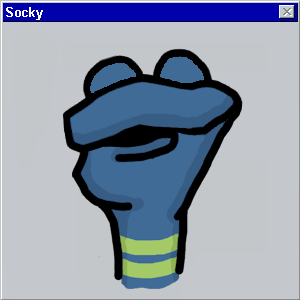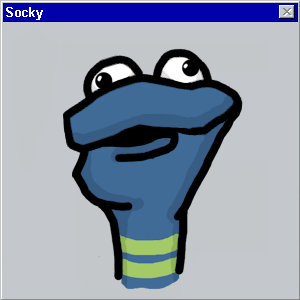Layout software for a cookbook?
November 8, 2005 7:08 AM Subscribe
Book writing software: specifically for a cookbook...
We're writing a cookbook. We want to give it to some friends and family, but we'd also like to send out a finished version to some publishing agents, as the thing's got great potential. And yes, I know we won't get rich from this.
Here's the question: is there any software that'll allow us to lay out the book? Most of the stuff we've seen is photo manipulation type stuff, which isn't really what we're looking for. We'd like to spend aorund $100 at most -- I don't think we'd need full-blown Quark or some fancy pants design software.
Has anyone done this before?
We're writing a cookbook. We want to give it to some friends and family, but we'd also like to send out a finished version to some publishing agents, as the thing's got great potential. And yes, I know we won't get rich from this.
Here's the question: is there any software that'll allow us to lay out the book? Most of the stuff we've seen is photo manipulation type stuff, which isn't really what we're looking for. We'd like to spend aorund $100 at most -- I don't think we'd need full-blown Quark or some fancy pants design software.
Has anyone done this before?
$\LaTeX$ is powerful and all, but I don't even wish it on computer science nerds -- most of us them, yeah, them even have problems with it. In the end it may honestly be worth investing in ease-of-use software since time IS money, moreso to some than others. Maybe find an older version of the above-listed things on ebay, since you probably won't need all the newest features and can save a ton that way?
posted by kcm at 7:36 AM on November 8, 2005
posted by kcm at 7:36 AM on November 8, 2005
If you expect any publisher to look twice at it, you will need some sort of fancy pants design software, i.a.: Pagemaker, Freehand or InDesign. The last one is probably the best of the 3.
Otherwise, if you don't care about how it looks, just use Word.
posted by signal at 7:44 AM on November 8, 2005 [1 favorite]
Otherwise, if you don't care about how it looks, just use Word.
posted by signal at 7:44 AM on November 8, 2005 [1 favorite]
Think of TeX more as a super-powerful HTML than a word processing set-up. Simplified explanation, yes, but it makes it much clearer why it can be slow to learn it all. However, in doing a cookbook, you'll probably need far fewer of the multitudes of functionality that TeX has to offer, and could make much better progress by needing fewer special set-ups, characters, etc.
That said, lyx (jacobm's GUIs link) is getting pretty good/close to being a WYSIWYG-TeX, though it is still a pain to install.
Also, books done in TeX look great as final products.
posted by whatzit at 7:45 AM on November 8, 2005
That said, lyx (jacobm's GUIs link) is getting pretty good/close to being a WYSIWYG-TeX, though it is still a pain to install.
Also, books done in TeX look great as final products.
posted by whatzit at 7:45 AM on November 8, 2005
I've laid out a cookbook (around 200 pages, lots of pictures and lots of recipes), among other things, with Serif PagePlus and recommend it without hesitation. I believe it's around $130 now. It's not hard to learn, but gives you much more control than something like Publisher. You can generate PDFs, including PDFs for different color seperations, and including PDF X/1a, which is intended for use in professional printing.
posted by IshmaelGraves at 8:11 AM on November 8, 2005
posted by IshmaelGraves at 8:11 AM on November 8, 2005
The academic version of Quark is really quite reasonable - is anyone you know a student, teacher, or homeschooler? You may be able to have them order it for you. Aside from a little sticker denoting that it's the academic edition, it's the same as the regular version.
posted by Ostara at 9:23 AM on November 8, 2005
posted by Ostara at 9:23 AM on November 8, 2005
Depending on the number of pages you're looking at, you might want to give Ragtime a try. It's available for Windows and Mac, and is free for non-commercial use (see Ragtime Solo). Ragtime is a frame-oriented desktop publishing software that combines word processing and spreadsheet functions/elements.
posted by amf at 9:24 AM on November 8, 2005
posted by amf at 9:24 AM on November 8, 2005
Best answer: You do not need to worry about whether your publisher likes your software. For all competent publishers, PDF has made software choices moot.
Quark, in a word, sucks donkey dick all day, every day. Please help put it to death.
Adobe Framemaker, Corel Ventura, and Adobe InDesign are the applications of choice. Framemaker and Ventura excel in structured long-document layout: textbooks, bibles, encyclopedias, and, yes, cookbooks; InDesign excels in all short-document unstructured layout: magazine advertisements, brochures, pamphlets, and, perhaps, cookbooks.
That said, you might as well look at RagTime, Scribus, and even OpenOffice. I don't see cookbooks as being a document that requires a whole lot of detail-obsessed design, so they should all be capable of doing what you want.
posted by five fresh fish at 10:02 AM on November 8, 2005 [1 favorite]
Quark, in a word, sucks donkey dick all day, every day. Please help put it to death.
Adobe Framemaker, Corel Ventura, and Adobe InDesign are the applications of choice. Framemaker and Ventura excel in structured long-document layout: textbooks, bibles, encyclopedias, and, yes, cookbooks; InDesign excels in all short-document unstructured layout: magazine advertisements, brochures, pamphlets, and, perhaps, cookbooks.
That said, you might as well look at RagTime, Scribus, and even OpenOffice. I don't see cookbooks as being a document that requires a whole lot of detail-obsessed design, so they should all be capable of doing what you want.
posted by five fresh fish at 10:02 AM on November 8, 2005 [1 favorite]
To be honest, any reputable publisher would re-set the entire document from scratch anyway; I'd just produce it as a Word document and submit it as a PDF.
Chefs don't carry the meals to the table, authors don't typeset their books!
posted by blag at 2:20 PM on November 8, 2005
Chefs don't carry the meals to the table, authors don't typeset their books!
posted by blag at 2:20 PM on November 8, 2005
That simply is not true, blag. Given a publication-quality PDF, any reputable publisher will not screw with the file: it will contain everything they need to go to print.
Making a publication-quality PDF is an art in itself, though: you are right that an author is better off focusing on their core competence (writing) and leaving the layout to a specialist.
posted by five fresh fish at 7:19 PM on November 8, 2005
Making a publication-quality PDF is an art in itself, though: you are right that an author is better off focusing on their core competence (writing) and leaving the layout to a specialist.
posted by five fresh fish at 7:19 PM on November 8, 2005
Sorry fff, I stand corrected.
I think what I meant is closer to your second sentence, though: I can't imagine a publisher going to print with anything supplied by an 'amateur' designer. The number of things that could go wrong (RGB/CMYK, fonts, LPI etc.) would mean that the risk would be too great.
Anyway, good luck to Atom12.
posted by blag at 3:25 AM on November 9, 2005
I think what I meant is closer to your second sentence, though: I can't imagine a publisher going to print with anything supplied by an 'amateur' designer. The number of things that could go wrong (RGB/CMYK, fonts, LPI etc.) would mean that the risk would be too great.
Anyway, good luck to Atom12.
posted by blag at 3:25 AM on November 9, 2005
This thread is closed to new comments.


Specifically for cookbooks: TeX doesn't come with built-in cookbook-typesetting functionality, but TeX is extensible with ways to typeset anything you can imagine, and in particular it looks like the Comprehensive TeX Archive Network has three separate packages that'll let you typeset recipes nicely [1, 2, 3].
A warning, though. TeX is very powerful but also very hard to use — it's not like Pagemaker or anything like that; in fact it's not a GUI program at all (though you can download third-party GUIs that will help you if you want). On the plus side, once you get the hang of it you'll want to use it for everything that involves typesetting.
posted by jacobm at 7:28 AM on November 8, 2005 [1 favorite]